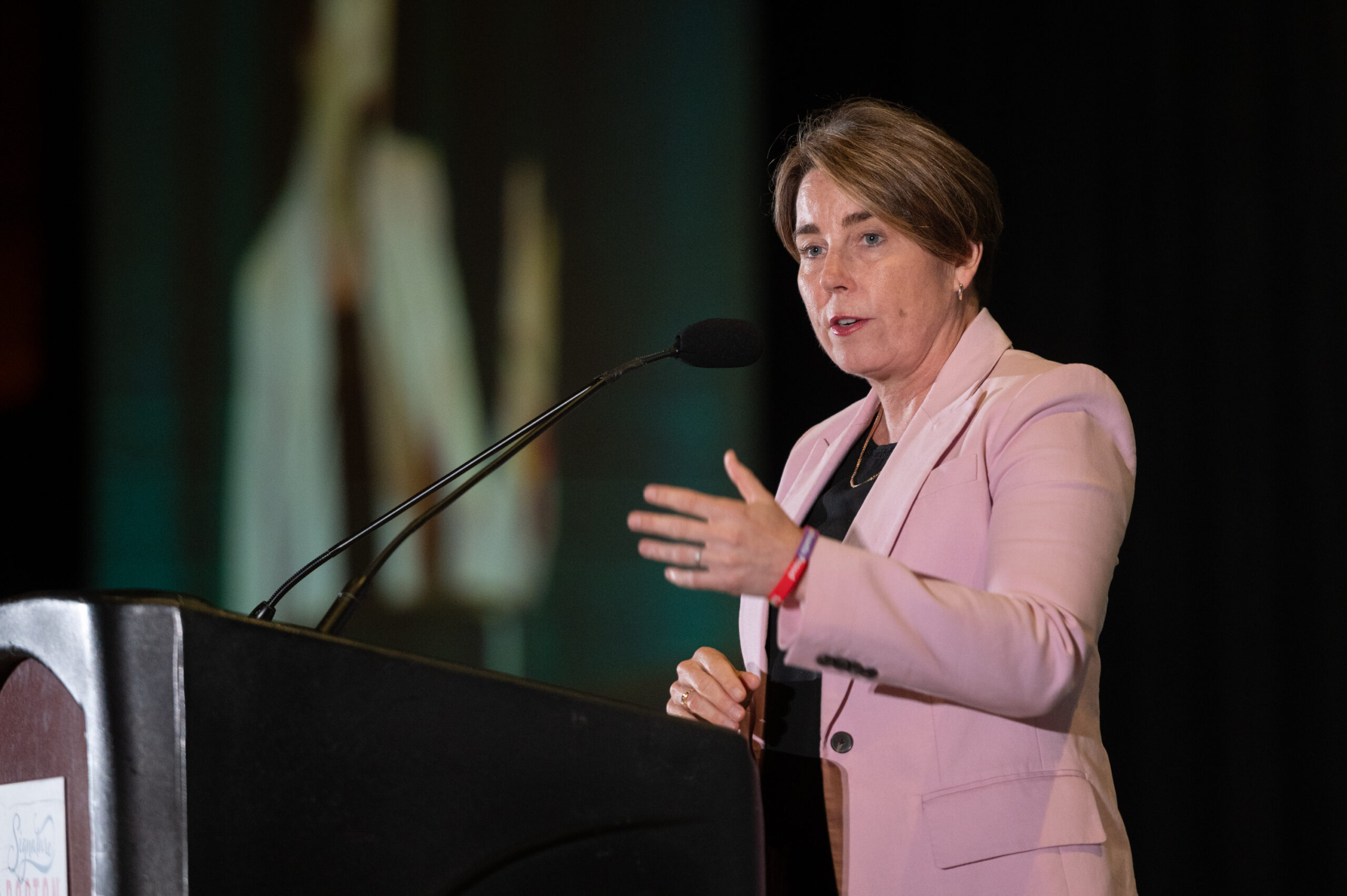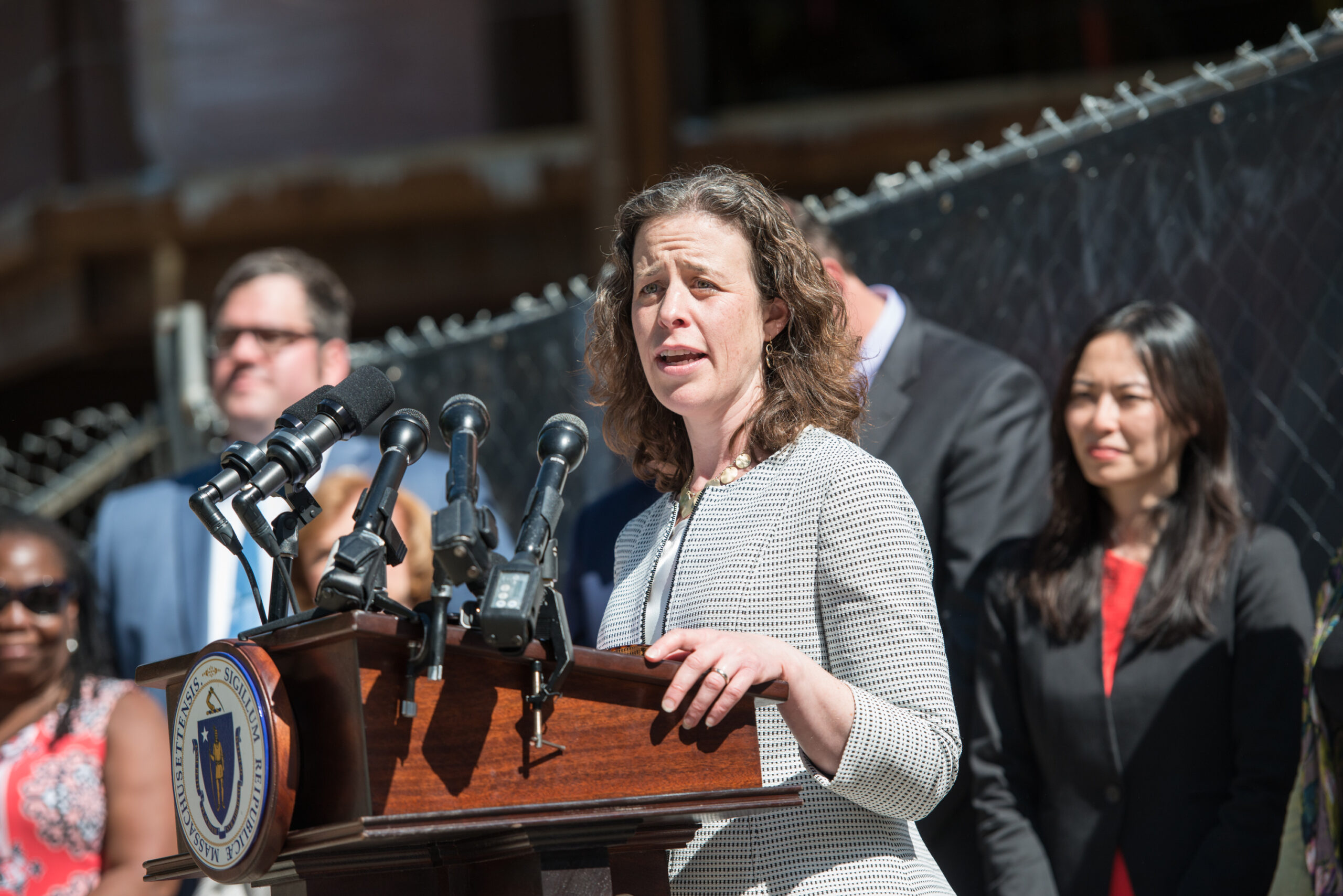
by Jenna Connolly | Jan 22, 2025 | Featured News, Housing News
Today, Governor Healey unveiled her budget proposal for Fiscal Year 2026. CHAPA is pleased that during what is shaping up to be a challenging fiscal year, this legislation largely maintains the Commonwealth’s commitment to investing in housing, with increases put forward for several important programs.
An overview of the Governor’s H1 budget proposal compared to the final FY26 budget is available here.
Still, more must be done. While the FY26 proposal includes a higher funding level than FY25, costs continue to rise. Far too many Massachusetts residents are struggling to find a home they can afford. Failure to provide adequate resources to address actual housing needs will only result in hardship for impacted households and increased costs in other areas for the Commonwealth.
Over the next six months, CHAPA will be joining with our members and partners to advocate for the funding we need to help address our housing challenges. The Governor’s proposal is the first step in a long budget process that now moves to the Legislature.
For a more detailed discussion of the Governor’s budget proposal as well as an opportunity to provide input into advocacy strategy, please join us on Thursday, January 25 at 10:30am on Zoom for the Building Blocks Coalition meeting. Registration is required and is available on the CHAPA website.

by Jenna Connolly | Jan 18, 2025 | Our Team
[email protected]
(617) 681-5437
Lousillia joined CHAPA in early 2025 as the Executive Assistant to CEO, Rachel Heller. In her role as EA, she will provide calendar management, facilitate internal and external communications, and support preparation for upcoming commitments, playing a strategic role in the organization’s administration. Lousillia is a Dorchester native who has supported executives & c-suites at both nonprofit and corporate organizations. She also brings a strong and passionate commitment to the communities she serves as a woman of color by fostering equality and inclusivity while doing her part to continue to create safe and inclusive environments for everyone she is in contact with. Outside of her role, Lousillia enjoys painting, spending time with loved ones, cheering on her Boston sports teams, and reading.

by Jenna Connolly | Jan 17, 2025 | Featured News, Housing News
Friday marked an important date in the new legislative session as it is the deadline for on-time filing of bills. Over the past several months, CHAPA has been working with stakeholders, policy makers, and legislators to develop a slate of priority legislation that we will be advocating for over the next two years. Our sincere thanks go out to everyone who participated in this process, but especially the legion of State House staffers who do remarkable work in helping to shape policy ideas into actual bills.
Below is CHAPA’s slate of priority bills, which have been assigned temporary docket numbers until they are sent to committees of jurisdiction, where they will receive bill numbers.
Please contact your state representative and senator to urge them to add their name as a cosponsor of these bills:
People
- Codification of the Massachusetts Rental Voucher Program (MRVP) – HD 2020 & SD 1573.
- Updating the Alternative Housing Voucher Program (AHVP) Statute – HD 1953 & SD 1708.
- Access to Counsel in Evictions – HD 3912 & SD 1771.
- Eliminating Mandatory Broker Fees for Tenants – SD 35.
- Establishing a Matched Savings Program – HD 3851 & SD 2106.
Production
- Yes In God’s Back Yard (YIGBY) to Allow Multi Family By-Right on Religiously-Owned Property – HD 3756 & SD 1663.
- Creating a Local Option Real Estate Transfer Fee – HD 1112 & SD 1216.
- Increasing the Deeds Excise Tax to Support Affordable Housing and Environmental Adaptation – HD 2997 & SD 846.
- Creating an Interagency Supportive Housing Finance and Strategy Board – HD 3758 & SD 2594.
- Establishing a Housing Production Goal for Massachusetts – HD 3920.
Preservation
- Creating a Commission to Examine Increasing Property Insurance Rates on Affordable Housing – HD 3370 & SD 876.
- Establishing a Zero Carbon Renovation Fund – HD 3171 & SD 1325.
Planning
- Yes In My Back Yard (YIMBY) to Eliminate Barriers to Housing Production – HD 3248 & SD 1913.
- Promoting Affordable and Fair Housing Through Inclusive Zoning – HD 2978 & SD 811.
- Establishing a Definition for Municipal Site Plan Review – HD 2362.
- Mandating Training for Local Land Boards – HD 2395 & SD 114.
by Jenna Connolly | Jan 10, 2025 | Housing News
HUD announced on January 8th the finalization of a rule updating its HOME Investment Partnerships Program to make it easier for communities to use federal housing funds and help more families access affordable homes. The rule incorporates feedback from stakeholders and aims to support states, localities, and nonprofits in implementing HOME funds more effectively.
Key Changes:
- Simpler Rules for Small Rental Projects: Makes it easier to fund projects like accessory dwelling units and duplexes by reducing inspections and paperwork.
- Better Coordination with Other Programs: Allows sharing of utility cost rules and inspection results with other federal housing programs to avoid duplicate work.
- Improved Help for Renters: Adds stronger lease protections for renters and reduces paperwork for tenants and landlords using rental assistance.
- Support for Green Building: Encourages energy-efficient homes to lower utility bills for families.
- Clearer Homeownership Rules: Extends deadlines for selling homes funded by HOME and allows updates or repairs after purchase.
These updates, along with simplified income checks, support for pre-development costs, and expanded funding options for community organizations, are designed to make the program more user-friendly, protect renters, and increase affordable housing options. For more information about HOME and the development of this rule, follow this link.
by Jenna Connolly | Jan 9, 2025 | Housing News
In December, the Executive Office of Housing and Livable Communities (EOHLC) released draft regulations regarding the by-right siting of Accessory Dwelling Units (ADUs) as established in the Affordable Homes Act (AHA). This portion of the law is due to go into effect on February 2, 2025.
Following the release of the draft regulations, EOHLC held two information webinars. These were followed by a public comment period that began on December 20 and ends on January 10. Also on January 10, EOHLC will hold a public hearing to solicit verbal feedback on the regulations. This hearing will take place both in-person at EOHLC’s offices and online via Zoom. CHAPA will be providing verbal comments at that hearing.
Today, CHAPA submitted written feedback to EOHLC on the regulations. In these comments, we applaud the agency for crafting the regulations in such a way as to encourage the development of ADUs and to discourage potential efforts to put up barriers to the creation of these new housing options that have the potential to be an important tool to address Massachusetts’ housing needs. CHAPA also provided feedback on areas where the regulations could be strengthened, particularly with respect to pre-existing nonconforming lots, facilitating utility connections, preventing undue restrictions on occupancy of of ADUs, and on assistance to ADU owners.
CHAPA looks forward to continuing to work with EOHLC and the Healey/Driscoll Administration on the implementation of the AHA and other efforts to build the homes our Commonwealth needs to thrive.



